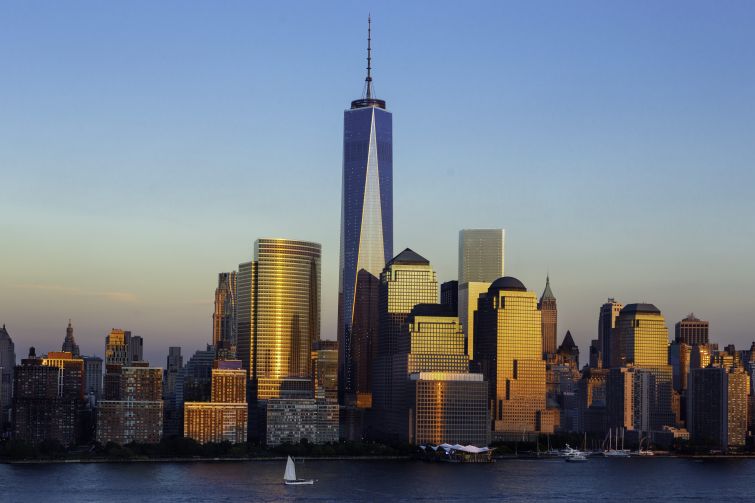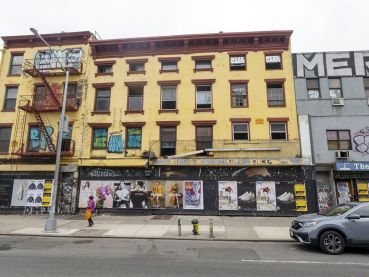Full Affordability at 5 WTC Bad for Financial Forecast: Port Authority
By Mark Hallum December 10, 2021 5:55 pm
reprints
The dream of having 100 percent affordable housing at 5 World Trade Center — the only residential building at the World Trade Center site — is out of reach thanks to the pandemic and the federal government not providing as much bailout money as the Port Authority of New York and New Jersey would have hoped.
That’s what the agency told politicians and activists Thursday night in stating that $12.5 million per year will need to be added to its projected revenue stream from the project through rent from tenants, something not possible unless a significant portion of the building is leased at market rate.
Derek Utter, chief development officer at Port Authority, told elected officials and Manhattan Community Board 1 leaders that the agency’s capital projects such as the rebuild of the Port Authority Bus Terminal or the LaGuardia Airport redevelopment, as well as the buildout of 5 WTC itself demand a powerful revenue stream.
The Port Authority would get $12.5 million every year from the developers of 5 WTC once the building was operating in the form of rent payments. If the agency is not able to profit to the right degree through residential development, putting the building to a different use may be its only option.
“So if the residential development is not viable for economic or regulatory reasons, the Port Authority will be limited to developing an office tower,” Utter said.
The Port Authority announced in February that it chose Silverstein Properties, Brookfield (BN) Properties, Omni New York and Dabar Development Partners to redevelop one of the World Trade Center’s last remaining sites into a 1.56 million-square-foot, mixed-use tower with apartments and office space.
The proposal calls to set aside about 25 percent of the 1.56 million-square-foot project for permanent affordable housing, or 330 apartments, with an area median income (AMI) at $100,000 for the three family household. The Port Authority said they will be requiring a minimum of $51,000 a year from potential tenants.
However, some locals started a push to switch the project to 100 percent affordable housing, giving preference of apartments to Sept. 11 survivors and their families, THE CITY reported.
Sen. Brian Kavanagh, whose office hosted the Thursday night forum over Zoom, believes the housing stock in his district has a long way to go to reverse declining affordability that has taken place in recent years.
“Unfortunately, a lot of the loss of [affordable housing] in Manhattan came from deregulation of enormous numbers of rent regulated units in [Lower Manhattan] … had the largest loss of such units anywhere in the city,” Kavanagh said. “So we are coming to this from a real deficit in affordability and we know that there are various dynamics that are also threatening the ongoing affordability of Battery Park City and the surrounding community. So we are looking at this building as a real opportunity to –– as several people have said –– really expand the economic diversity of this neighborhood and the affordable opportunities.”
But Utter said the devastation the pandemic reaped on the Port Authority’s funds makes switching the project to 100 percent affordable housing a no-go. Plus, starting with a fresh request for proposals would only further delay the project altogether.
Airport traffic and Port Authority Trans-Hudson (PATH) ridership was down 90 percent over the height of the pandemic, resulting in a $3 billion loss of revenue over the last two years, Utter said. The Port Authority’s capital plan and spending had been cut back by about $1 billion per year.
The 5 WTC plan is expected to generate $2 billion in economic benefits with 10,000 new jobs through construction and indirect work.
The Port Authority expects to have shovels in the ground at 5 WTC, also known as 130 Liberty Street, in 2023.
Mark Hallum can be reached at mhallum@commercialobserver.com.


